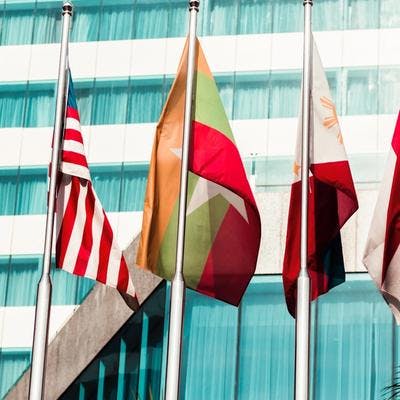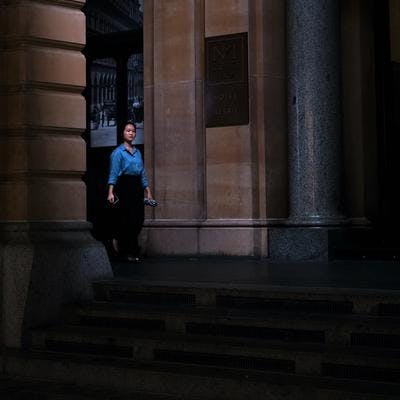
The Expat Experience in Bahrain
There is a unique richness to the expat experience in Bahrain, a country that offers a blend of Middle Eastern tradition and modern conveniences. From a financial perspective, it's important to understand the local economic landscape and the financial context in which one will be living.
Living in Bahrain: The Financial Context
Bahrain, a small island nation in the Persian Gulf, is known for its thriving economy and high standard of living. The country boasts a robust financial sector, making it an attractive destination for expats seeking employment opportunities. However, financial planning as an expat living in Bahrain requires an understanding of the financial context of the country, including the cost of living, banking system, and tax regulations.
The cost of living in Bahrain can vary significantly depending on one's lifestyle choices and living arrangements. Rental rates, utilities, food, and transportation are primary costs to consider. While the cost of housing and utilities can be relatively high, food and transportation are generally more affordable compared to other Gulf countries.
Expenditure Average Monthly Cost (BHD) Rent (1-bedroom apartment in city centre) 400-600 Utilities (Electricity, Heating, Cooling, Water) 50-100 Food 120-200 Transportation (Public Transport) 20-30
Understanding the Economic Landscape of Bahrain
Bahrain's economy is one of the most diversified in the Gulf region, with a strong focus on banking and finance, manufacturing, and tourism. The country's strategic location and advanced infrastructure make it an attractive hub for businesses and investors, leading to a diverse and dynamic economic landscape.
The banking sector in Bahrain is particularly robust, with a wide array of both local and international banks offering a range of services. It's important for expats to familiarize themselves with the banking system, including the process of opening an account, transferring money internationally, and understanding the various financial products available.
Moreover, while Bahrain has no personal income tax, expats should be aware of other potential tax liabilities, such as the Value Added Tax (VAT). Understanding these factors will enable expats to navigate the financial landscape effectively and make informed decisions about their finances.
Living and working in Bahrain can offer expats a rewarding experience, both personally and financially. However, it's important to approach the expat journey with a solid financial plan. Learning about the financial context and economic landscape of Bahrain is a crucial first step in this process. For further insights and guidance on financial planning as an expat, explore our range of articles on financial planning as an expat living in Saudi, Dubai, Qatar, and other locations.
Financial Planning: The Basics
Understanding the basics of financial planning is essential, particularly for expats navigating the financial landscape of a new country. In this section, we delve into why financial planning is crucial for expats and the key aspects of effective financial planning.
Why Financial Planning is Crucial for Expats
Financial planning as an expat living in Bahrain is crucial for several reasons. Firstly, it allows expats to navigate the economic landscape of Bahrain effectively. With a solid financial plan, they can ensure they have sufficient resources to meet their living costs, save for the future, and manage any financial risks they may encounter.
Secondly, financial planning helps expats understand and fulfil their tax obligations in Bahrain. By planning their finances effectively, expats can avoid any potential legal complications and ensure they are compliant with Bahrain's tax regulations.
Lastly, financial planning is essential for expats to achieve their long-term financial goals, whether that's buying a home in Bahrain, investing in the local stock market, or saving for retirement. With a robust financial plan, expats can make informed decisions that align with their financial goals and risk tolerance.
Key Aspects of Effective Financial Planning
Effective financial planning involves several key aspects. These include:
- Budgeting: Developing a comprehensive budget is the first step in effective financial planning. This involves tracking income and expenses, setting spending limits, and saving for future goals.
- Saving: Regular saving is crucial for financial security. Expats should aim to save a portion of their income each month, which can be used for emergencies, major purchases, or long-term financial goals.
- Investing: Investing can help expats grow their wealth over time. This could involve investing in the Bahraini stock market, property, or other investment vehicles.
- Tax Planning: Understanding the tax system in Bahrain and planning for tax obligations is a critical aspect of financial planning for expats.
- Insurance: Expats should consider what types of insurance they might need in Bahrain, such as health insurance or home insurance.
- Retirement Planning: Even while living abroad, it's important for expats to plan for retirement. This may involve contributing to a pension scheme or investing in a retirement savings account.
Key Aspect Description Budgeting Tracking income and expenses, setting spending limits Saving Saving a portion of income for emergencies, major purchases, or long-term goals Investing Growing wealth through investments in the stock market, property, or other investment vehicles Tax Planning Planning for tax obligations and understanding the tax system Insurance Considering necessary insurance types, such as health or home insurance Retirement Planning Planning for retirement, including contributing to a pension scheme or retirement savings account
These key aspects form the foundation of effective financial planning. By understanding and applying these principles, expats can navigate the financial landscape of Bahrain with confidence. For more insights into financial planning as an expat in other countries, you can refer to our articles on financial planning as an expat living in Saudi, Dubai, Qatar, Cayman, and the Caribbean.
Navigating the Bahraini Financial System
Understanding the financial system in Bahrain is a key element in financial planning as an expat living in Bahrain. This section covers the essential elements, including Bahraini banking and money transfers, tax considerations, and understanding the cost of living in Bahrain.
Understanding Bahraini Banking and Money Transfers
The banking sector in Bahrain is advanced and highly regulated, offering a wide range of services to meet the diverse financial needs of expats. This includes savings and current accounts, credit cards, loans, and various investment options.
An important aspect of navigating the Bahraini financial system is understanding how to transfer money, both domestically and internationally. Most banks in Bahrain offer online banking services that enable easy and secure money transfers. Charges for these services vary depending on the bank and the nature of the transaction.
Transaction Type Typical Fee Domestic Transfer Free - BD 0.5 International Transfer BD 2 - BD 5
Dealing with Taxes in Bahrain as an Expat
One of the main attractions of Bahrain for expats is its tax-friendly environment. The country does not impose personal income tax, making it an appealing destination for foreign workers. However, expats should be aware of other potential tax liabilities such as property tax, if they choose to invest in real estate, and the Value Added Tax (VAT) on goods and services.
For expats who are tax residents in their home country, it is important to understand the tax laws and treaties between Bahrain and their country of origin to avoid double taxation.
Understanding the Cost of Living
The cost of living in Bahrain varies depending on lifestyle, family size, and location. While some goods and services may be cheaper than in your home country, others, such as education and healthcare, can be expensive.
Expense Category Average Monthly Cost (BD) Rent for 1-bedroom flat in city centre 400 - 600 Utilities (electricity, heating, cooling, water) for 85m2 flat 30 - 50 Internet (60+ Mbps) 10 - 20 Basic dinner out for two in neighbourhood pub 20 - 30 Monthly pass (public transport) 15 - 25
Understanding the Bahraini financial system is a crucial step in managing your finances effectively as an expat. It allows you to plan your income, expenses, savings, and investments in a way that aligns with your financial goals. For more insights on financial planning as an expat in other locations, you can read our guides on financial planning as an expat living in Saudi, financial planning as an expat living in Dubai, or financial planning as an expat living in Qatar.
Practical Financial Planning Strategies for Expats in Bahrain
Financial planning as an expat living in Bahrain requires a comprehensive understanding of the financial landscape and a clear vision of your short and long-term financial goals. In this section, we will discuss three key strategies: setting and managing a budget, saving and investing, and planning for retirement.
Setting and Managing a Budget
Establishing a budget is one of the most effective ways to control your spending and ensure that your income covers your expenses. Setting up a budget involves understanding your income sources, tracking your expenses, and making necessary adjustments to align your spending habits with your financial goals.
A simple budget plan could include categories like:
Categories Budget Allocation (%) Housing 30 Food 20 Transportation 10 Utilities 10 Entertainment 5 Savings 25
Once your budget is established, it's important to review and adjust it regularly based on changes in your income, expenses, or financial goals.
Saving and Investing as an Expat in Bahrain
Saving is the first step to financial security, but investing can help grow your wealth over time. Understanding the financial market in Bahrain and the investment opportunities available is crucial.
You can choose to invest in assets such as real estate, stocks, or bonds, depending on your risk tolerance and financial goals. Diversifying your investment portfolio can also help manage risk and potentially increase returns.
It's important to understand the tax implications of your investments in Bahrain. For instance, some investments may be subject to capital gains tax. Consulting with a financial advisor or investment professional can provide valuable insights and help guide your investment decisions.
Planning for Retirement as an Expat in Bahrain
Planning for retirement is a critical aspect of financial planning for expats. If you're working in Bahrain, you may be contributing to a pension scheme or retirement fund. However, it's important to understand the details of these schemes, including how much you're contributing, the benefits you're entitled to, and the terms for withdrawal.
Additionally, you may want to consider setting up a private retirement savings account or investing in a retirement fund. This can provide an additional source of income during retirement and help ensure your financial security in the long term.
Consider your desired retirement lifestyle, the cost of living in your retirement location, and any potential healthcare costs when planning for retirement. This will help you estimate how much you need to save and invest for a comfortable retirement.
Implementing these practical financial planning strategies can help you navigate the financial landscape in Bahrain and achieve your financial goals. Similar strategies can also be applied in other expat destinations. For more insights on financial planning as an expat in other countries, you can check out our articles on financial planning as an expat living in Saudi, financial planning as an expat living in Dubai, or financial planning as an expat living in Qatar.
Managing Risks and Emergencies
One crucial part of financial planning as an expat living in Bahrain is managing risks and preparing for emergencies. In this section, we will discuss important considerations related to insurance and preparation for financial emergencies while living abroad.
Insurance Considerations for Expats in Bahrain
Insurance is a vital risk management tool for expats in Bahrain. It provides a safety net against unforeseen events and financial burdens that can arise from health issues, accidents, or property damage.
Health Insurance: Bahrain has a high standard of healthcare, but it can be costly. It's crucial for expats to have comprehensive health insurance that covers a range of medical services. Some employers offer health insurance as part of their benefits package, but it's important to review the coverage to ensure it meets your needs.
Vehicle Insurance: If you plan on driving in Bahrain, vehicle insurance is mandatory. It's crucial to understand the terms and conditions of your policy, including what's covered and any potential exclusions.
Home and Contents Insurance: For homeowners or tenants, home and contents insurance can protect against the financial impact of damage or loss to your home or belongings.
Travel Insurance: If you plan to travel outside Bahrain, travel insurance can cover medical expenses, trip cancellations, or lost luggage.
Preparing for Financial Emergencies Abroad
Living abroad comes with its own set of uncertainties and potential emergencies. As an expat, it's essential to be prepared for sudden financial needs.
Emergency Fund: It's recommended to set aside three to six months' worth of living expenses in an accessible account. This fund can cover unexpected costs, such as medical emergencies, sudden loss of income, or urgent travel.
Repatriation Fund: In the event you need to return to your home country urgently, a repatriation fund can cover the costs. This includes flights, shipping belongings, and potential living expenses upon return.
Access to Funds: Ensure you have multiple ways to access your funds. This includes having more than one bank account, preferably in different banks, and keeping a credit card for emergencies.
Legal Documents: Keep copies of all important documents, like passports, visas, insurance policies, and medical records, in a safe and accessible location. In an emergency, easy access to these documents can save time and reduce stress.
Managing risks and being prepared for emergencies is a fundamental aspect of financial planning as an expat. While this guide is specific to Bahrain, many principles apply to expats living in other countries as well. Check out our guides on financial planning as an expat in Saudi, Dubai, Qatar, Cayman and the Caribbean for more information.




